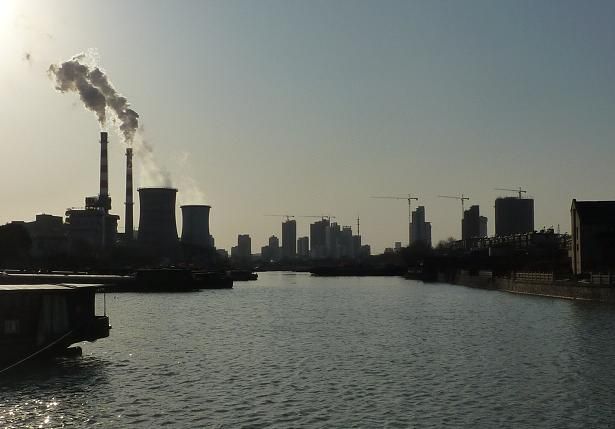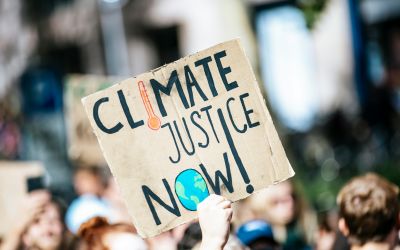Business as unusual: the required response to the climate challenge
With the release of the fifth Assessment Report of the Intergovernmental Panel on Climate Change (IPCC) the world has received another of science’s periodic warnings of the need to change, or face disaster.

Private sector organisations are changing their attitude, and are beginning to see possibilities for new business in climate change mitigation. This progress is being accelerated by the proactive work of The Prince of Wales’s Corporate Leaders’ Group (CLG).
Yet again, climate scientists have made it clear that the world faces severe impacts if we cannot dramatically reduce the emissions of greenhouse gases. Humanity is conducting an unprecedented experiment with the earth’s atmosphere.
The report of Working Group 1 of the IPCC which reviews the core physical science behind climate change, confirms a further increase in the level of certainty amongst scientists that human activities – chiefly the burning of fossil fuels – are the main cause of warming since the 1950s. It falls to all of us to make sure this warning does not go unheeded.
Facing the warning
The University of Cambridge Programme for Sustainability Leadership (CPSL) has 25 years’ experience in convening groups of business leaders to help them understand and respond to the most significant challenges facing their organisations and the world today, including climate change.
Business has a major role to play in the transition to a low-carbon economy: it is the private sector that will innovate and invest in the new technologies and systemsthat will form the foundation of this new economy. The private sector is uniquely placed to foster positive change, not only through its products and services but also via its capital, talent, international perspective, and influence on policy and civil society.
In our experience there has been a considerable shift in business perspectives on climate change over the last few decades. When we first engaged with companies the almost universal response to challenges like climate change was focused on compliance and reputation management. Increasingly companies have moved to take a much more strategic view and to see these issues as being essential to their long-term risk management efforts. More and more they are also seeing the possibilities for competitive advantage and new business. In some cases this realisation has led to some genuinely transformative decarbonisation targets, more commensurate with the scale of the climate challenge.
However, even as companies establish these targets it becomes clear that the scale of the task facing them is significant, requiring both internal capacity building to drive change, and also new, collaborative ways of working to unlock broader systemic change. While companies must make changes within their own operations to unlock the scale of action required, operating within the right frameworks that incentivise low-carbon innovation and growth instead of high-carbon activities is critical. The rulesof the game need to change.
The challenging context
The context that surrounds business decision-making means that many company leaders feel constrained in taking a longer-term view. Against a global backdrop of ever-increasing complexity and uncertainty, with continuing market turmoil, a focus on conventional economic growth, and pervasive national, regional and international policy gridlock on climate and carbon, it is unclear that the market will reward sensible responses to the climate science warnings.
Indeed, current actions taken by governments to mitigate and adapt to climate change are not commensurate with the scale of the challenge we face. Many politicians believe that acting more strongly on climate change will cost more than their economies and their public support can bear.Addressing climate change has immediate and direct costs while its benefits are perceived to be diffuse, both globally and over time.
Action on climate change is often framed in terms of an increase in costs and a loss of competitiveness during a time of economic downturn. The resulting policy frameworks give weak incentives to firms and investors to reduce their emissions and shift to low carbon technologies. For many private investors, uncertainty over the future direction of policy, combined with the demand for short-term returns, make investment in low-carbon assets hard to justify.
Working together to secure change
Policy-makers are increasingly calling for support from business in this arena to help them build the necessary consensus for action, and to counteract the loud voices pushing for ‘business as usual’. It is the voice of enlightened business at the table, supporting and influencing the design of the policy responses and institutional architecture, which will make the low-carbon transition happen, as much as it is the voice of obstructionist business that can undermine any action.
In recent years, this critical role has increasing been recognised by forward thinking business leaders, and companies have begun to take proactive strides in working positively with governments to create effective climate policy. One such example is The Prince of Wales’s Corporate Leaders Group (CLG), convened by CPSL on behalf of HRH The Prince of Wales.
Since 2005, the CLG has worked with the governments of the day to secure the effective climate policies required to deliver the transition to a low-carbon, climate resilient economy. It has also come together with other business groups globally to form the Corporate Leaders Network – seeking to collaborate to speed up the necessary change.
The CLG members believe that transformational change is required given the scale of the challenge. They know climate change will not go away, and that the best result for business is clearly a well-managed and structured policy response to the issue.
International action
Recognising that this is a global problem and that global action is required to solve it, the CLG has drawn global business voices together to articulate key messages through the Corporate Climate Communiqués. These documents set out business arguments for robust national and international policies on climate change and are seen by many as the definitive voice of progressive business on international climate change. A significant group of international CEOs and senior business leaders from over 1,200 companies in 61 countries, including many of the world’s biggest brands, have repeatedly stepped up to alert the world through these statements.
In 2012, the CLG created the Carbon Price Communiqué, specifically dedicated to highlighting the need for a global carbon price. It makes the case for setting a price on carbon emissions as one of the main building blocks of an effective and ambitious climate change policy framework, both nationally and internationally. Any effective deal must have at its heart measures to cut carbon emissions and businesses have consistently advocated measures that work with the market like a carbon price.
Decision point
The IPCC’s fifth assessment report arrives at an apposite time. Parties to the UNFCCC agreed at the COP17 meeting in Durban (pictured right )in 2011 to launch a new round of discussions aimed at forming an agreement in 2015 that will apply to all countries, including major emitters. The process of negotiations between now and then must take on a new seriousness..jpg)
The decisions made in the next two years will have immense power to either set the world on the path to a low-carbon economy or send us well off track. To put us on the right path policy-makers and businesses must work together to transform the global economy so that global greenhouse gas emissions can be kept below safe levels. This means proposals should be put in place that are able to deliver large-scale economic transformative mitigation, and incentivise private investment in a new low-carbon economy. Business leaders have shown a clear preference for market mechanisms combined with other appropriate policies as the most cost-effective way to deliver this, and this should be reflected in any 2015 agreement.
Without clarity and global commitment, the international approach will increasingly become fragmented. Thiswill lead to different approaches in different locations, raising the cost of compliance and making things harder for businesses.
Conclusions
This is the critical time. We have an opportunity to transform our economy and lead the world down a path of green growth, well-managed climate risks and decarbonisation. The opportunity must be seized now, or else we risk missing out on new markets and locking in high-carbon, ill-adapted investments. This requires the right policy framework – a framework that takes the long-term strategic view, that is adequately ambitious, that is clear and cost-effective and does not impose unnecessary burdens on business, but rather releases the energy and innovation of the private sector.
Businesses can play a critical role in this transition, taking on a leadership position that looks past the short term into a longer-term vision. The International Energy Agency (IEA) has shown that CO2 emissions in 2010 were the highest on record, and are still rising. If we do not act now, climate change risks seriously undermining future global prosperity and inflicting significant social, economic and environmental costs on the world.








_400_250_80_s_c1.jpg)